The Leaders of Tomorrow: Top 10 personalities of 2024-2025

Featuring 10 trailblazers shaping the future. From business to activism, these visionaries redefine success and inspire change.
Weather update: Delhi-NCR sees light rain, more showers expected on…
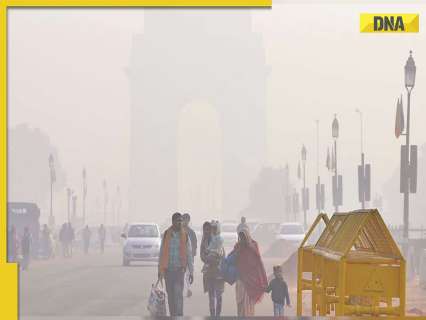
The weather office has predicted that more showers are expected on Saturday as well.
Democratic lawmaker demands Musk, OPM stop sending mass emails to staffers: ‘Chaotic’
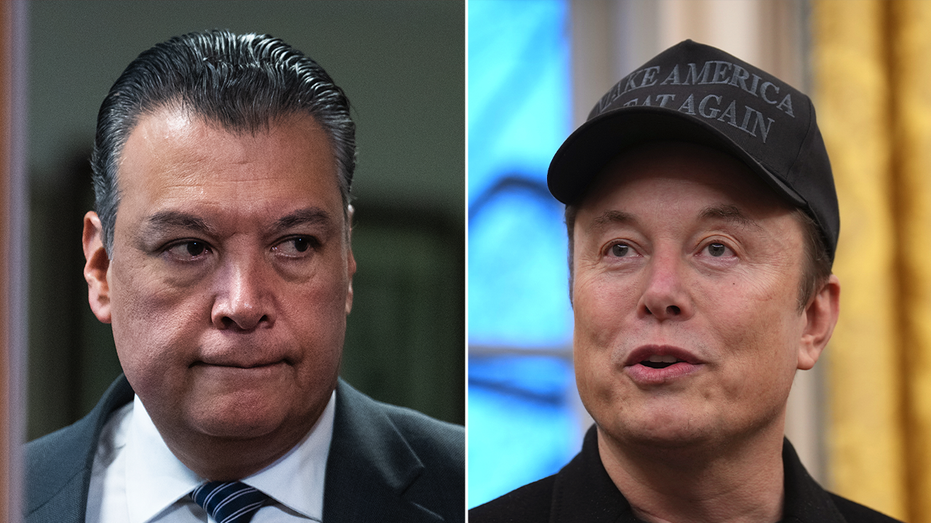
Sen. Alex Padilla, D-Cali., is demanding that Elon Musk and Acting Director of the Office of Personnel Management (OPM) Charles Ezell stop sending mass emails to staffers. In an open letter published Thursday, Padilla said several legislative branch offices and agencies have received mass emails from hr@opm.gov despite not being subject to personnel actions by the executive branch. “Neither the White House nor [the Department of Government Efficiency] nor OPM have any authority or legitimate purpose to mass email legislative branch offices and agencies demanding information from employees or to threaten adverse personnel actions,” Padilla said. Over the weekend, the OPM sent out mass emails to federal government workers, asking them to summarize what they did over the prior week using five bullet points. They had until 11:59 p.m. on Monday to provide their responses to the inquiry. VIVEK RAMASWAMY ARGUES DOGE HOSTILITY ROOTED IN ‘IRRATIONALITY,’ DEFENDS TRUMP, MUSK’S PURSUIT OF ‘GOLDEN AGE’ Padilla said these emails, received by legislative staffers, wasted “time and resources and potentially [mislead] employees into responding and sharing legislative branch information in an unauthorized manner.” Padilla added that the emails were “especially concerning” since several executive branch agencies have “even warned their own employees not to respond to these messages because doing so would risk sensitive information falling into the hands of malign foreign actors.” “The fact that these mass emails are also going beyond the scope of the executive branch is yet another sign of how DOGE is operating in an uninformed, poorly executed, and chaotic manner,” Padilla said. The Democratic lawmaker ended his letter requesting that DOGE and OPM confirm they have taken steps “to ensure that they will cease directly any further mass email communications at legislative branch offices and agencies and their employees.”
‘Business is not good’: Vietnam’s floating markets dwindle as economy soars

Can Tho, Vietnam – As dawn breaks over Can Tho, the city’s river is filled with the roaring engines of tour boats. In the distance, traditional wooden houseboats emerge through the dim light as the Cai Rang Floating Market comes into view. Cai Rang, and other markets like it, were once among the most recognisable cultural icons of southern Vietnam, with a history dating back to the early 20th Century. Before the development of roads and bridges, the myriad waterways of the delta region were the primary means of trade and transport, leading to the development of floating markets where channels converged. But over the last two decades, the markets have dwindled in size in tandem with Vietnam’s rapid economic development – first gradually, then suddenly – and only two of the region’s 10 major markets retain any significant presence. “When I first visited [Cai Rang] market in 2011, it was much larger,” Linh, a local guide, told Al Jazeera. “Now it’s about a third of that size,” said Linh, who led daily tours to the market up until a few years ago. Advertisement Today, Cai Rang comprises about 200 vessels, fewer than half as many as during its peak in the 1990s. Nearby Phong Dien market has shrunk to fewer than a dozen boats and has largely disappeared from tourist itineraries. Cai Be, a once-thriving market in neighbouring Ben Tre province, is among those that have vanished completely, closing for good in 2021. A tour boat operator navigating the Can Tho River, a tributary of the Hau River, one of the main branches of the Mekong [Oliver Raw/Al Jazeera] Historically the biggest of the delta’s markets, Cai Rang still resembles a decent-sized assembly of boats – at least from afar. On closer inspection, the market looks more sparse. Nowadays, tour boats make up a significant portion of the traffic on the water. Still, the market functions much as it always has, as sampans are loaded up with produce from larger “wholesalers”, which is then brought back to markets on land. For many sellers, the boats double as homes. Daily life is on full display as the boat dwellers wash dishes with water from the river, cook meals over small stoves, or relax in hammocks – often with children and pet dogs in tow. Yet behind the photogenic charm, anxieties linger. “Business is not good,” Phuc, who works at the market selling pineapples to tourists, told Al Jazeera. Sometimes she sells just 10 pineapples a day at 20,000 Vietnamese dong ($0.78) each. “Only in the high season is it possible to make enough money. The rest of the time, we are barely surviving.” Until two years ago, Phuc and her husband worked as wholesalers selling yams. Advertisement Every week for the previous 25 years, they would travel to Long An province, near Ho Chi Minh City, to restock their boat – a process that took several days there and back. But as road infrastructure has improved in the last decade, land-based trade has become faster and more cost-effective, supplanting the need for river-based commerce. “The only people who continue to work here are those who can’t afford to buy a van or a big car [to deliver produce],” her husband, Thanh, told Al Jazeera. A sampan loaded with pineapples, ready for transport to land-based markets [Oliver Raw/Al Jazeera] Tuyen, who works as a wholesaler selling onions, garlic and sweet potatoes, is also downbeat. “Ten years ago, I used to earn good money doing this, but now it’s just enough to get by,” she told Al Jazeera, while preparing a breakfast of fish soup on her boat. “Everything is more difficult now.” Tuyen said the COVID-19 pandemic was a turning point, after which many sellers, unable to make ends meet, switched to working on land. Asked why she did not join them, she pointed to the rental fees for a market spot – about five million Vietnamese dong ($195). On the boat, she has no rent to pay. “I’d prefer to stay on land – it’s more comfortable and convenient – but I don’t have the money,” she said. While improved roads are often cited as the reason for the markets’ decline, other factors have played a part. Many smaller markets have struggled to recover from temporary closures during the pandemic, as health and safety regulations prompted a shift to land-based markets. Advertisement Poor planning has further exacerbated the situation. To address the annual flooding of the Mekong Delta, the authorities have in recent years constructed flood prevention walls along the banks of the Can Tho river, one of its many waterways. While these walls have helped reduce flooding and erosion, the absence of piers has made it harder for river-based trade to continue. Broader cultural shifts also cast a cloud over the future of the floating market. As Vietnam modernises, younger generations are turning their backs on their parents’ trade, seeking better education and career opportunities. “My daughter doesn’t want to work here,” Phuc said. “She prefers to work on her own terms for a company and invest in stocks. She’s not like us – she doesn’t like this life.” A wholesale vendor selling large quantities of yams [Oliver Raw/Al Jazeera] Though vendors may worry about the future, Cai Rang’s survival appears to be of little consequence to the average resident of the nearby city of Can Tho. These days, most people shop in supermarkets and shopping malls and have little reason to visit Cai Rang. “For me, it’s nothing special,” a hotel receptionist, who has visited the market only once, told Al Jazeera, asking not to be named. Yet tourism contributes approximately 6 percent to the city’s economy, with Cai Rang Floating Market the main draw. In 2017, the city welcomed 7.5 million tourists, according to official figures. While arrivals hit 5.9 million in 2023 after dropping off to practically nothing during the pandemic, the numbers remain significantly below their peak. Advertisement Much of this is due to
North Korea says it launched cruise missiles in message to ‘enemies’
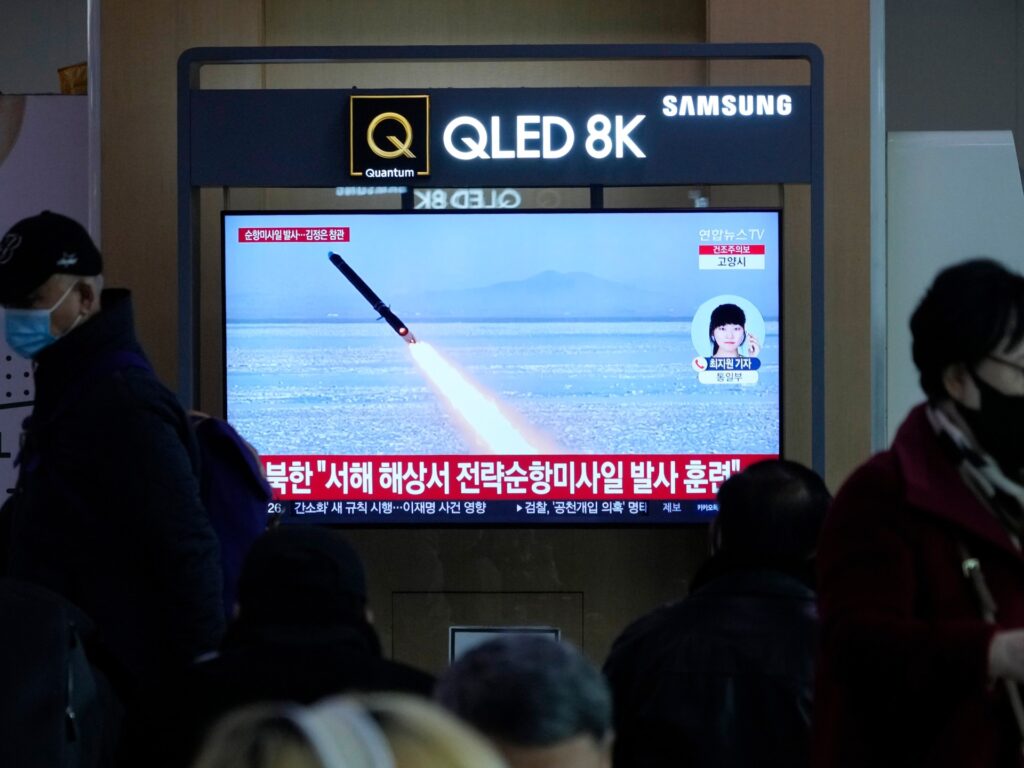
North Korean leader Kim Jong Un oversaw missile drills this week in the Yellow Sea, state media reports. North Korea has carried out test launches of strategic cruise missiles to send a message to “enemies” about its counterattack capabilities, state media has said. North Korean leader Kim Jong Un presided over the missile drills in the Yellow Sea on Wednesday, the Korean Central News Agency (KCNA) said on Friday. South Korea’s Joint Chiefs of Staff confirmed that it had detected and tracked the launches in a statement later in the day. Pyongyang carried out the drills to warn “enemies, who are seriously violating the security environment of the Democratic People’s Republic of Korea and fostering and escalating the confrontation environment”, and to show the “readiness of its various nuke operation means”, KCNA news agency said, using the North Korea’s official name. The missiles precisely “hit the targets” after flying for 130 minutes along a 1,587km-long (986-mile) trajectory, the KCNA said. “Expressing satisfaction over the result of the launching drill, Kim Jong Un said it is a responsible exercise of the DPRK’s war deterrence to continuously test the reliability and operation of the components of its nuclear deterrence and demonstrate their might,” the official mouthpiece said. Advertisement The drills were the fourth such missile launch this year and the second since the inauguration of United States President Donald Trump in January. Trump, who held three summits with Kim during his first administration in an unsuccessful push for Pyongyang’s nuclear disarmament, has expressed his intention to reach out to the North Korean leader during his second term. “I got along with him,” Trump told Fox News host Sean Hannity in an interview in January. “He is not a religious zealot. He happens to be a smart guy.” Adblock test (Why?)
Canada’s Doug Ford wins Ontario election focused on Trump’s tariffs
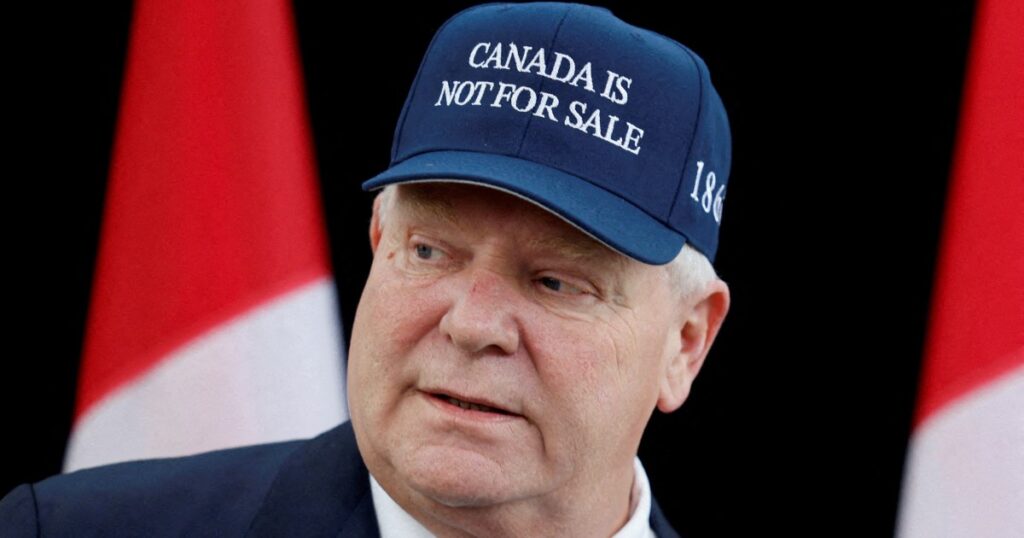
Progressive Conservative Party wins third consecutive majority in vote dominated by trade tensions. Canada’s Ontario province has re-elected Premier Doug Ford’s ruling conservatives in an election heavily focused on trade tensions stoked by United States President Donald Trump. Ford and his Progressive Conservative Party (PC Party) cruised to their third consecutive legislative majority on Thursday after seeking the “largest mandate in Ontario history” to protect the economy of Canada’s most populous province from Trump’s tariffs. The PC Party had won at least 74 seats in the 124-member Legislative Assembly of Ontario and was leading in seven other districts as of Thursday night, according to a tally by the Canadian Broadcasting Corporation. “We’re going to make sure we protect the people of Ontario and protect their families, and their jobs and businesses,” Ford, 60, told CTV News after his win. “I’ll fight tooth and nail against Donald Trump. I’ll promise you that.” Ford, who often sported a “Canada is Not for Sale” hat and styled himself as Captain Canada throughout his election campaign, called the vote more than a year early, arguing that he should have a stronger mandate to navigate years of potential economic chaos under Trump. Advertisement “This is gonna be a battle for the next four years,” Ford said last month as he called the snap election. “I want to make sure I have a strong mandate to outlast President Trump.” During his campaign, Ford twice travelled to Washington, DC, and made numerous appearances on US networks such as Fox News and CNN to lobby against the tariffs and position himself as a spokesman for Canada as a whole. Earlier this week, he said he would impose a tariff on electricity sent from the province to the US if Trump went ahead with his threatened trade measures. Ontario, which surrounds Toronto and is home to about 40 percent of Canada’s population of some 40 million people, is highly dependent on trade with the US. More than 80 percent of Ontario’s exports went to the US in 2023, making it the province most reliant on American consumers after New Brunswick and Alberta, according to an analysis by Scotiabank. Trump, who had agreed to a 30-day pause on his threatened tariffs on Canada and Mexico pending negotiations on border security, said on Thursday that the 25-percent levies would go into effect on March 4. Trump, who has also suggested that the US could absorb Canada as its 51st state, said on Truth Social that he had made his decision as illicit drugs such as fentanyl were continuing to cross the border at “unacceptable levels”. Adblock test (Why?)
JD Vance spars with British prime minister over free speech censorship during Oval Office meeting
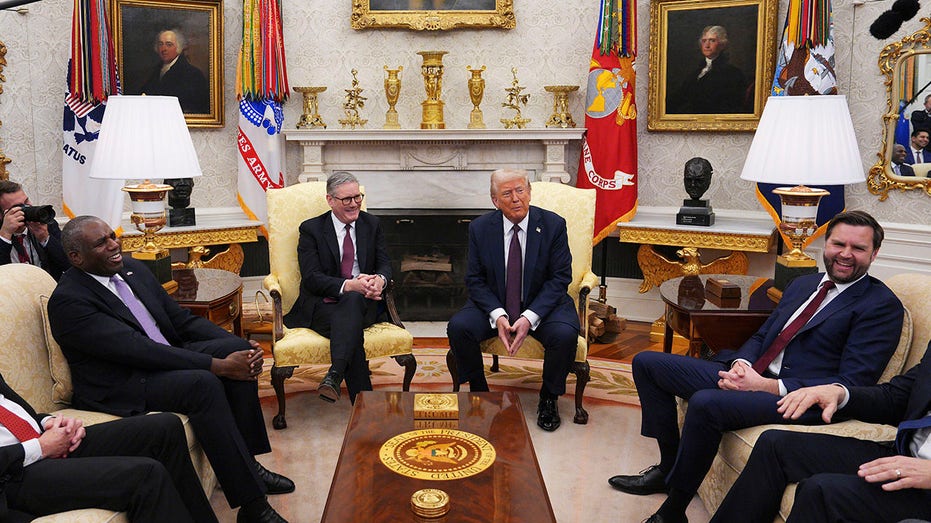
Things got awkward when Vice President JD Vance remarked on his previous comments on Britain’s free speech environment, just feet away from British Prime Minister Keir Starmer during an Oval Office meeting. Vance doubled down on his comments at the Munich Security Conference earlier this month when he said he feared that free speech was “in retreat” in Europe. “To many of us on the other side of the Atlantic, it looks more and more like old entrenched interests hiding behind ugly Soviet-era words like misinformation and disinformation, who simply don’t like the idea that somebody with an alternative viewpoint might express a different opinion or, God forbid, vote a different way, or even worse, win an election,” Vance said. UK’S STARMER MEETS TRUMP AT WHITE HOUSE AMID DIVIDE BETWEEN US, EUROPE OVER UKRAINE PEACE DEAL On Thursday, as Starmer met with President Donald Trump and administration officials at the White House, Vance stood by his comments. “I said what I said, which is that we do have, of course, a special relationship with our friends in the U.K. and also with some of our European allies,” he said. “But we also know that there have been infringements on free speech that actually affect not just the British. Of course, what the British do in their own country is up to them,” Vance added. “But (it also affects) American technology companies and, by extension, American citizens. So, that is something that we’ll talk about today at lunch.” VANCE EVISCERATES ‘SOVIET’-STYLE EUROPEAN CENSORSHIP IN ADDRESS TO MUNICH SECURITY CONFERENCE Starmer, seated just a few feet away next to Trump, quickly chimed in. “We’ve had free speech for a very, very long time in the United Kingdom, and it will last for a very, very long time,” the Labour Party politician said. “Certainly, we wouldn’t want to reach across, and [regulate] U.S. citizens, and we don’t, and that’s absolutely right,” he told Vance. “But in relation to free speech in the U.K., I’m really proud of that — our history there.” In Munich, Vance cited the case of a British army veteran who was convicted of breaching a safe zone around an abortion clinic where he silently prayed outside. He decried the enforcement of buffer zones, alleging that the Scottish government had warned people against private prayer within their own homes.
Judge blocks Trump administration’s mass dismissals of probationary federal employees
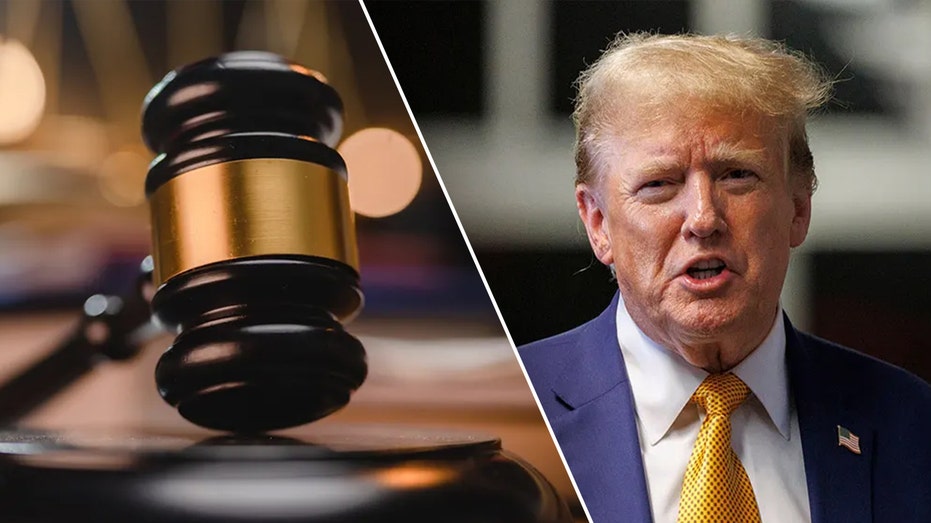
A judge in California blocked the Trump administration on Thursday from ordering departments and agencies to begin dismissing recently hired probationary federal workers, saying the Office of Personnel Management (OPM) lacks the power to fire employees. The move came during a court hearing over a lawsuit from labor unions and other groups challenging OPM’s mass terminations. In their lawsuit, the plaintiffs claim the mass terminations violate the Administrative Procedure Act requirements and congressional laws that deal with agency hiring and firing practices. The judge ruled that OPM lacks the power to fire workers, including probationary employees who may have less than a year of civil service on the job. TRUMP’S DOGE STAYS ON TRACK AFTER PAIR OF FEDERAL JUDGE RULINGS Last week, a federal judge declined to stop the Trump administration from firing federal workers and conducting mass layoffs, which allowed the Department of Government Efficiency (DOGE) to remain on track with its mission of finding and slashing wasteful government spending. In one of the cases, U.S. District Judge Christopher Cooper shot down a request from several labor unions, including the National Treasury Employees Union (NTEU), to issue a pause on the mass firings of federal workers. NTEU and four other labor unions representing the federal employees filed a complaint on Feb. 12, challenging the firing of probationary employees and the deferred resignation program. JUDGE ISSUES RESTRAINING ORDER AFTER TRUMP BLOCKS FEDERAL FUNDS FOR YOUTH SEX CHANGE OPERATIONS Under the resignation program, federal employees were presented with a fork in the road, meaning they could either return to office or they could resign from their positions and continue to get paid through September. The deadline to decide was originally Feb. 6, though the date was ultimately deferred to Feb. 12, then subsequently closed that day. CLICK HERE TO GET THE FOX NEWS APP The unions moved for a temporary restraining order and preliminary injunction to prevent the firing of probationary employees across all federal agencies and furtherance of the resignation program on Feb. 14, and the next day it was sent to Cooper’s court. Cooper denied the request, though, saying the court lacks jurisdiction over the unions’ claims. Instead, Cooper ruled the unions must pursue their challenges through the Federal Service Labor-Management Relations Statute, which provides for administrative review by the Federal Labor Relations Authority.
Trump says ‘I can’t believe I said that’ when asked if he still thinks Zelenskyy is a dictator
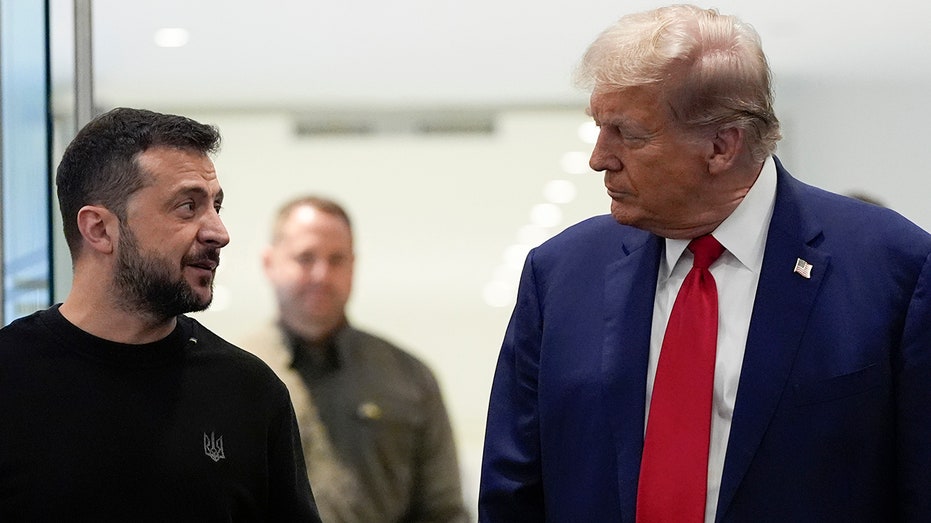
President Donald Trump was asked several times on Thursday about comments he made last week, when he called Ukrainian President Volodymyr Zelenskyy a “dictator,” though he oftentimes either ignored the question or could not remember making the statement. Trump met with U.K. Prime Minister Keir Starmer at the White House on Thursday, when the two leaders addressed peace talks between Ukraine and Russia. The president told reporters he has had back-to-back “very successful” calls with Russian President Vladimir Putin, as well as with Zelenskyy, with hopes of bringing the war between Ukraine and Russia to an end. “I think we’ve made a lot of progress, and I think it’s moving along pretty rapidly,” Trump said. “[Friday], the progress toward peace will continue when President Zelenskyy visits the White House. He’ll be here tomorrow in the early part of the day, and we’ll be signing a historic agreement that will make the United States a major partner in developing Ukraine’s minerals and rare earths, oils and gases.” TRUMP SAYS DEAL WITH UKRAINE FOR US ACCESS TO ITS RARE EARTH MINERALS IS ‘PRETTY CLOSE’ The president and Zelenskyy will meet at the White House around 11 a.m. Friday, and Trump said the rare earth minerals agreement will provide the basis for a sustainable future between the two countries. With Zelenskyy’s visit quickly approaching, reporters asked Trump on Thursday if he had plans to apologize to the Ukrainian president for calling him a dictator. Earlier this month, Trump blasted Zelenskyy as a “dictator without elections” after the U.S. left Ukraine out of its initial peace talks with Russia. TRUMP TEASES MEETING WITH ZELENSKYY AMID US’ ‘SERIOUS DISCUSSIONS’ WITH PUTIN TO END RUSSIA-UKRAINE WAR “A Dictator without Elections, Zelenskyy better move fast or he is not going to have a Country left,” Trump wrote on Truth Social at the time. “In the meantime, we are successfully negotiating an end to the War with Russia, something all admit only ‘TRUMP,’ and the Trump Administration, can do. Biden never tried, Europe has failed to bring Peace, and Zelenskyy probably wants to keep the ‘gravy train’ going.” When Trump greeted Starmer at the White House on Thursday, one reporter asked the two leaders about having common ground, with Trump describing Zelenskyy as a dictator and Starmer describing Putin as a dictator. After dodging the question, another reporter asked Trump if he still believed Zelenskyy was a dictator. TRUMP CALLS UKRAINE’S ZELENSKYY A ‘DICTATOR WITHOUT ELECTIONS’ AS RIFT WIDENS “Did I say that?” Trump asked. “I can’t believe I said that. Next question.” After the two leaders met in the Oval Office, they faced reporters once again, and a reporter asked Trump if he would take the opportunity to apologize to Zelenskyy for calling him a dictator while praising Putin, who is a dictator. Rather than address calling Zelenskyy a dictator, Trump spoke about the upcoming meeting with the Ukrainian president, saying, “I think we’re going to have a very good meeting tomorrow. … We’re going to get along really well.” While Ukraine and Russia were a big topic during Trump and Starmer’s meeting, so were tariffs. One reporter asked Trump if Starmer had persuaded him not to impose tariffs on the U.K. Trump said Starmer tried hard to convince him not to impose the tariffs. “I think there’s a very good chance that, in the case of these two great friendly countries, I think we could very well end up with a real trade deal where the tariffs wouldn’t be necessary,” Trump said. “We’ll see.” While the U.S. and U.K. started with a rocky relationship in colonial days, it has flourished into one that both leaders agree is special and will remain strong. In fact, Trump was handed a letter from King Charles through Starmer, inviting the president and first lady for a state visit. “It was my privilege and honor to bring a letter with me today from His Majesty the King, not only sending his best wishes but also inviting the president and the first lady to make a state visit to the United Kingdom, an unprecedented second state visit,” Starmer said, noting this has never happened before. “It’s so incredible. It will be historic, and I’m delighted that I can go back to His Majesty the King and tell him that President Trump has accepted the invitation.” Immediately following Starmer’s announcement, Trump thanked the prime minister and offered a compliment. “What a beautiful accent,” the president said. “I would have been president 20 years ago if I had that accent.” Fox News Digital’s Danielle Wallace contributed to this report.
Finance Secretary Tuhin Kanta Pandey appointed as SEBI chairman
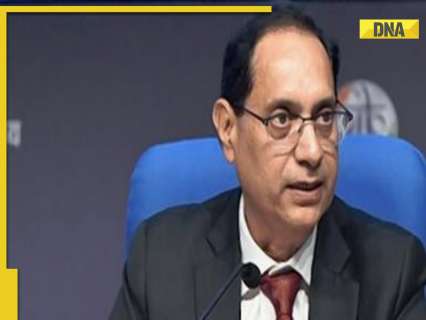
An order issued by the Appointments Committee of the Cabinet late Thursday said the appointment of Pandey as Sebi chief will be for three years.

